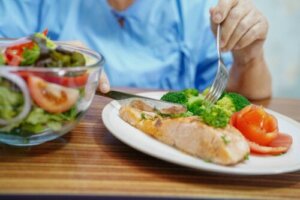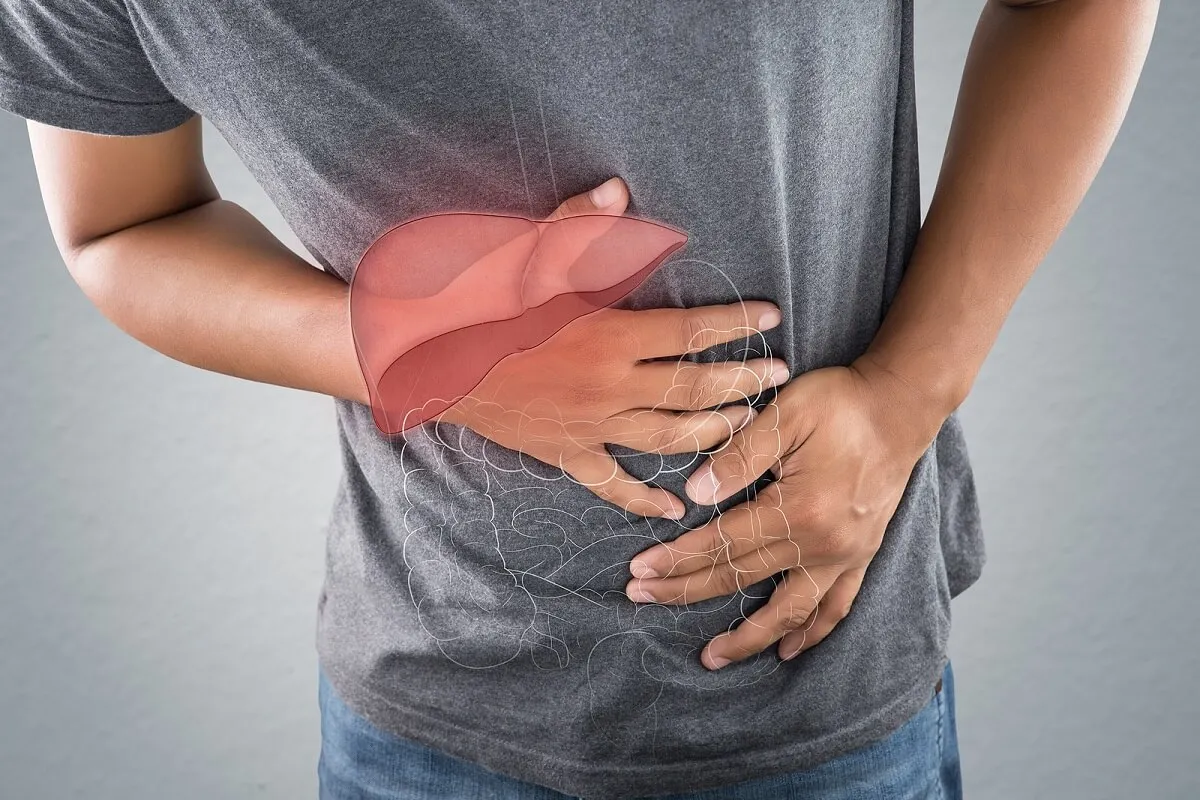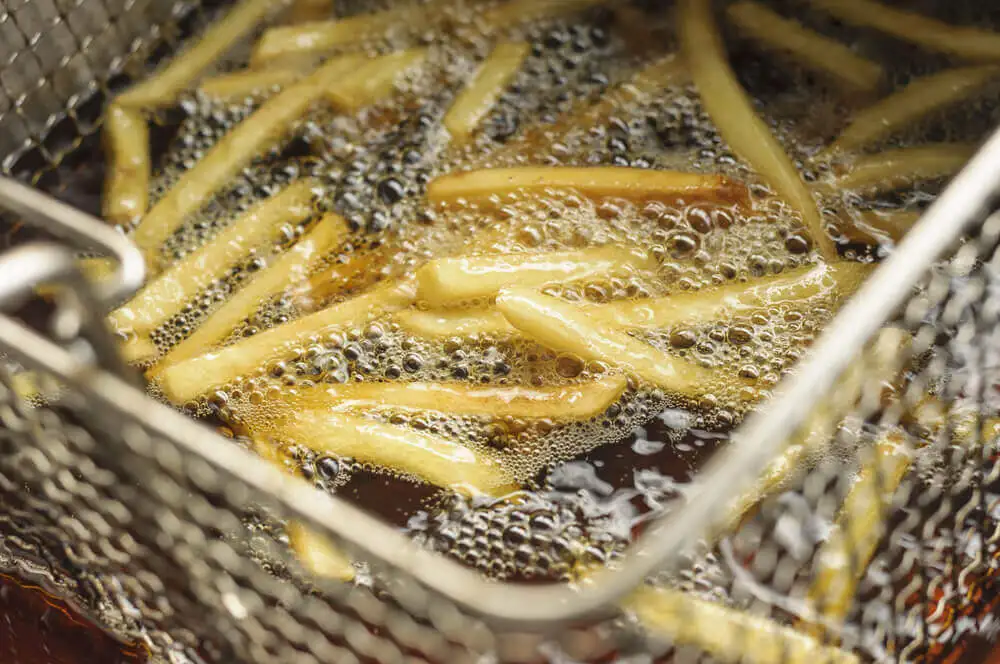Recommended Diet and Nutrition for Hepatitis Patients


Written and verified by the nutritionist Anna Vilarrasa
Proper nutrition is important for patients with hepatitis, although there’s no “standard diet” for the disease. People with hepatitis should eat a healthy, balanced diet and avoid all foods and beverages that can contribute to liver damage.
Of course, diet complements the treatment determined by specialists and under no circumstances replaces it. There aren’t any foods that can “cure” hepatitis, but there are foods that contribute to the patient’s well-being.
What is hepatitis and how can nutrition help patients with hepatitis?

Hepatitis is an inflammation of the liver that can be of short duration (acute) or prolonged in time (chronic). In both cases, it involves damage to the organ that prevents it from functioning normally.
There are several types of hepatitis with different causes and routes of transmission:
- The most common is transmitted by an A, B, C, D, or E virus.
- Alcoholic hepatitis is caused by excessive alcohol consumption.
- Some toxins and certain medications, supplements, or chemicals can cause toxic hepatitis.
- Autoimmune hepatitis occurs when the immune system attacks the liver and causes cell damage. The cause is unknown, but genetics and environment are two possible triggers.
Early diagnosis and treatment are important in order to avoid irreparable damage to the organ. Cirrhosis (scarring of the liver), liver failure, or liver cancer are some of the possible complications.
Although adequate nutrition in patients with hepatitis doesn’t lead to a cure, it’s important in determining a good state of health during the disease. A balanced diet helps maintain fluid balance and prevents liver overload.
Find out which foods are the most suitable, which should be avoided and how to organize your diet. If you’re interested in learning more, we invite you to read on.
Find out more: 5 types of Hepatitis and their main characteristics
Nutrition tips for patients with hepatitis
Broadly speaking, the diet for this disease is based on vegetables, whole grains, fruits, and lean proteins. This may vary depending on the patient’s initial condition and subsequent evolution, but general guidelines can be established that are recommended to follow.
- Eat adequate protein to avoid excesses and deficiencies. These are necessary to restore damaged cells and to avoid malnutrition of the patient. If the liver doesn’t process them properly, toxic waste can accumulate. The best sources are lean meat and fish, legumes, eggs, and low-fat dairy products.
- In general, it’s advisable to increase the presence of carbohydrates over protein. If possible, opt for whole grains such as rice, quinoa, oats, or couscous.
- Consume fats in moderate amounts. It isn’t good to eliminate them from the diet because they have important functions in the body. However, it is essential to choose healthy sources such as olive oil, avocados, nuts, or oily fish.
- Fruits and vegetables are all allowed and are important for their nutritional value.
- It’s advisable to salt food in moderation and limit your intake in case of fluid retention.
- Adjust energy intake, especially in patients who have lost weight. Some patients also experience tiredness and a lack of appetite. For this reason, it’s advisable to eat small meals more often and, if necessary, to eat a small snack before going to bed.
- The diet should be easy to digest, so it’s preferable to opt for gentle cooking methods: grilling, baking, steaming, or boiling.
Foods to avoid

An unhealthy diet, and certain foods and drinks, in particular, can aggravate liver damage. For this reason, it’s preferable to avoid the following list in hepatitis nutrition.
- Alcohol: according to the authors Marzano and Peña, with the data available so far, it can be stated that alcohol worsens the degree of liver damage and accelerates its progression. This in turn leads to a higher risk of developing more serious problems such as cirrhosis or liver cancer.
- All soft drinks or drinks with added sugars.
- Raw or undercooked seafood and fish.
- Fatty meats (such as some parts of pork, duck, or lamb) and sausages. Also, avoid fried foods, pre-cooked dishes, sauces, and very fatty food, as well as those made with cheese or cream.
- To control the presence of sodium, it’s important to reduce the intake of products that contain large amounts of it such as salty snacks, processed sauces, soup cubes, prepared creams, or preserves made with salt.
- Some patients may need to take a supplement of certain vitamins. Although supplementation may be necessary in specific cases, it isn’t necessary in all patients. If there are nutritional deficiencies for any reason, it’s the doctor who should prescribe this supplementation. Some vitamins and minerals are metalized in the liver and, if administered in excess, can have negative effects.
Discover more here: Limit These Types of Food for the Health of the Liver
Apart from the diet: other positive habits
When suffering from liver problems, having a healthy lifestyle can minimize liver damage. One of them is diet, but there are other aspects that also play an important role.
Exercise is an interesting and essential practice. On the one hand, it strengthens the body and prevents the loss of strength and muscle tone. On the other hand, it’s a way of coping with the ups and downs that some people experience.
However, this physical activity must be adapted to the patient’s condition and the fatigue that hepatitis produces. It’s advisable to increase the duration and intensity little by little, and always advised by the doctor or specialist.
As mentioned above, it’s essential to avoid alcohol intake, which damages the liver and has other negative effects on the body. It’s also necessary to give up other habits that can be harmful, such as tobacco or drugs. In addition, it isn’t advisable to self-medicate because some drugs can damage the liver.
Finally, it’s interesting to note that, while suffering from the disease, it’s important to increase hygiene measures. Any virus, bacteria or toxin present in food can increase the possibility of liver damage. To do this it is necessary to wash all food and surfaces as well as having a careful hand hygiene before and after handling them.
Nutrition is of great help in patients with hepatitis
Diet and lifestyle habits are complementary aspects in the treatment of liver disease. However, their impact is of great help in preserving liver function, avoiding irreversible damage, and improving the general state of health of patients.
A healthy diet that takes into account the aspects mentioned above is the best way to eat in this case. However, it’s preferable to follow the diet and have a follow-up with the doctor as each situation may require some more specific changes.
In addition, it’s important for each patient to observe their individual tolerance to certain foods as the sensations and digestion can vary greatly between different people.
Apart from having specialist help, it’s a very positive step to seek the support and contact of family, friends, or other people affected by hepatitis. Knowing that you’re not alone in dealing with the disease can help you to manage it with less stress.
All cited sources were thoroughly reviewed by our team to ensure their quality, reliability, currency, and validity. The bibliography of this article was considered reliable and of academic or scientific accuracy.
- Hajdarevic B, et al. The role of diet therapy in the treatment of liver disease. Materia SocioMedica. Setiembre 2020. 32 (3): 200-206.
- Marsano L. S, Peña L. R. The interaction of alcoholic liver disease and hepatitis C. Hepatogastroenterology. Marzo-Abril 1998. 45 (20): 331-9.
- Medline plus. Dieta para la enfermedad hepática. Biblioteca Nacional de Medicina de los Estados Unidos.
- Medline plus. Hepatitis. Biblioteca Nacional de Medicina de los Estados Unidos.
- Yasutake K, et al. Nutrition therapy for liver diseases based on the status of nutritional intake. Gastroenterology. Noviembre 2012. 859697.
This text is provided for informational purposes only and does not replace consultation with a professional. If in doubt, consult your specialist.








